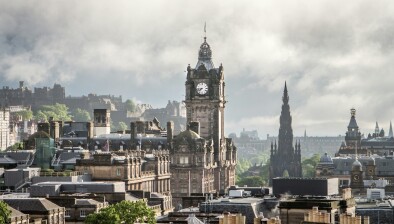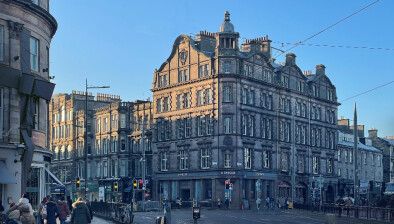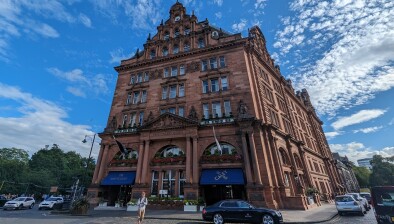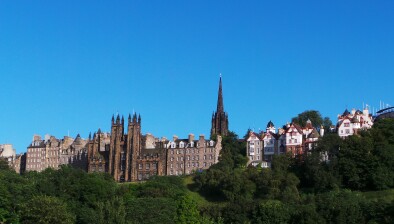Commercial property investment volumes up on 2020

Oliver Kolodseike
Commercial property investment volumes in Scotland in the second quarter of this year were up on the same period of 2020, and business and consumer confidence look set to grow as pandemic restrictions are eased, according to new analysis.
Colliers’ Scotland snapshot for the second quarter of 2021 reveals that more than £400 million was invested during the period, up from £371m transacted in the first three months of the year.
However, investment was about 20% below the five-year quarterly average of £528m, as the effects of the Covid-19 continue to be felt.
Colliers pinpointed signs of recovery, with transactional activity much stronger than a year ago. And at the half year mark, investment volumes were up by more than 50% on the same time in 2020.
Oliver Kolodseike, deputy UK chief economist for research and forecasting at Colliers, said: “While investment in the second three months of this year was still well below the five-year quarterly average, there are reasons for optimism.
“There is pent-up capital waiting to be deployed in Scotland. A number of deals are currently under offer and should complete in the coming weeks and months.
“We expect a further boost with remaining restrictions due to be eased in Scotland on 9 August and we should return to some form of normality.”
Colliers found that just over £100m was invested in the alternative, or mixed-use, sector in the second quarter of the year. While this is down from almost £200m in the first three months of 2020, it was only slightly below the five-year quarterly average of £111m. This sector accounted for over 40% of all activity by value in the first six months of the year. In the largest deal in this sector, LCN Capital bought the Alba complex life sciences campus in Livingston for £45m.
Offices made up almost half of all investment in the second quarter as transactional activity picked up, with over £180m invested. This was three times the first quarter figure of £60m and above the five-year quarterly average of £165m.
The four largest office deals in the second quarter were all recorded in Edinburgh, led by Rockstar Games buying its own building on Holyrood Road for £31m and the adjoining Holyrood Park House for £17m.
In the industrial sector, investment reached around £70m in the second quarter, up from £52m in the first three months of the year, and around 10% above the five-year quarterly average of £62m. The largest deal was DataVita’s acquisition of the Fortis data centre at Strathclyde Business Park for £45m.
Turning to retail, around £60m was invested in the second three months. Although this was double the first quarter figure, it is less than half the five-year average of £130m. The largest retail deal was the sale of a B&Q retail warehouse in East Kilbride to an American REIT for £19m.
Mr Kolodseike added: “Activity clearly remains subdued in the retail which has been hit hard by the pandemic.”
Looking at occupier activity, Colliers warned that rents in the retail sector will continue to fall as more companies enter administration and shops become obsolete.
In offices, Colliers expects a strong rebound in the second half of the year as lockdown restrictions ease. In one of the largest leasing deals of the second quarter, BT signed a pre-let for 80,000 sq ft of office space at Dundee’s West Marketgait scheme.
In the industrial sector, Colliers said healthcare-related demand has recently been a prominent feature at the larger end of the market. It added that while supply-demand conditions continue to favour landlords, take-up activity in 2021 could be hampered by the lack of good quality space across Scotland.
Elliot Cassels, director for national capital markets at Colliers in Edinburgh, added: “We have witnessed increased activity and yield compression in the retail warehouse and food store sectors and there continues to be deep demand for long-dated indexed-linked income and the alternatives market.
“There has also been strong investor demand for Edinburgh offices, with keen prices having been paid. Footfall in city centres still remains low and investor appetite thin for high street retail and leisure.”

















